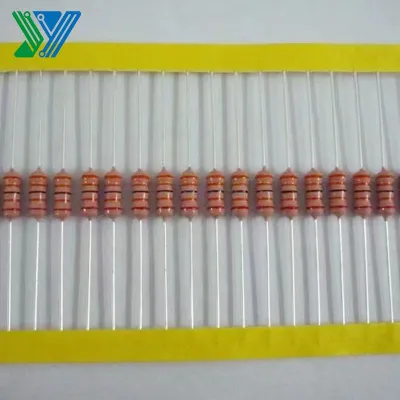What is the Use of Metal Glaze Resistor?
Metal glaze resistors may seem like a technical term from the world of electronics, but their applications go beyond the intricacies of circuits and wires. In this article, we will explore the uses of metal glaze resistors in a way that is easy to understand for everyone, shedding light on their significance in various aspects of our lives.
Metal glaze resistors, at their core, are components designed to limit the electric current flowing through a circuit. This limitation is crucial for maintaining the stability and functionality of electronic devices, making metal glaze resistors an integral part of numerous applications.
What is a Metal Glaze Resistor?
A metal glaze resistor is a type of resistor that utilizes a ceramic base coated with a thin layer of metal glaze. This glaze provides the resistor with specific properties, making it an ideal choice for various electronic applications. The simplicity of its construction belies the complexity of its role in ensuring the proper functioning of electronic circuits.
Applications of Metal Glaze Resistors
Metal glaze resistors find applications in a wide array of electronic devices that we encounter in our daily lives. From the gadgets we use at home to the intricate machinery in industries, these resistors play a pivotal role in ensuring that electronic circuits operate within desired parameters.
In household electronics, metal glaze resistors contribute to the stability of devices like televisions, refrigerators, and washing machines. They are also vital in industrial settings where precision and reliability are paramount.
Related articles:Differences Between An LED Display And LCD Monitor
How Much Does A Home Security System Cost In 2024?
Advantages of Using Metal Glaze Resistors
The decision to use metal glaze resistors is not arbitrary; it stems from their distinct advantages. These resistors offer unparalleled stability and precision, ensuring that electronic devices perform consistently over time. Additionally, they exhibit resistance to high temperatures and humidity, making them reliable even in challenging environmental conditions.
How Metal Glaze Resistors Work
To grasp the utility of metal glaze resistors, it's essential to understand their functioning. These resistors regulate the flow of electric current by impeding its progress. The resistance values can be tailored to specific requirements, and the tolerance ensures that the resistance remains within acceptable limits.
Types of Metal Glaze Resistors
Metal glaze resistors come in various types, each designed for specific purposes. The construction and materials used can vary, allowing for customization based on the needs of the electronic circuit. Some variants are specialized for high-precision applications, while others are more robust for demanding industrial environments.
Choosing the Right Metal Glaze Resistor
Selecting the appropriate metal glaze resistor involves considering the specific requirements of the electronic circuit. Factors such as resistance values, power ratings, and tolerance levels must be taken into account to ensure optimal performance. Manufacturers often provide detailed specifications to aid in the selection process.
Conclusion
In conclusion, the use of metal glaze resistors goes beyond the technical realm of electronics. These components are the unsung heroes that contribute to the reliability and longevity of our electronic devices. From home appliances to industrial machinery, metal glaze resistors play a crucial role in ensuring that the technology we rely on operates seamlessly.
355
0
0


Comments
All Comments (0)